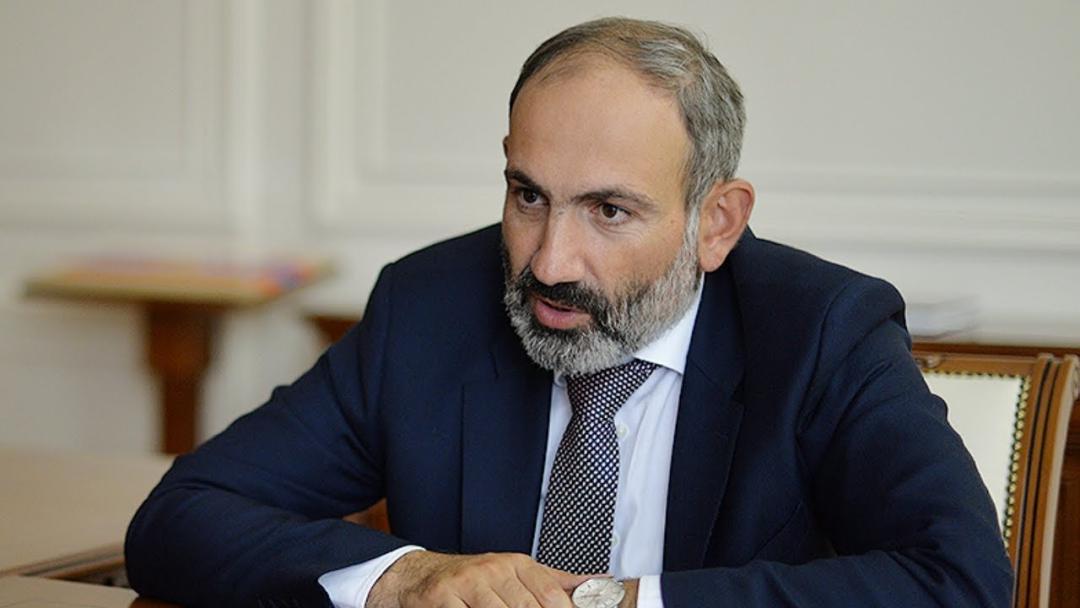
Nikol Pashinyan's Press Conference: Theses and reactions

On March 19, 2019, the Armenian Prime Minister, Nikol Pashinyan, gave a press conference. It went over 4 hours and was therefore considered exceptionally long. The main theses of the Armenian Prime Minister were summarized in the following, based on the news agency Novosti-Armenia as well as news and information from other Armenian media.
- The Armenian government is currently discussing 89 investment programs totaling $ 2.7 billion.
- Taxi drivers working as sole traders would be exempted from all taxes. The full tax exemption would also affect small businesses with annual revenue below 24 million Dram (approximately US $ 50,000).
- Armenia's new initiatives in the negotiating process on the Nagorno-Karabakh conflict are not a challenge for conflict resolution but an invitation to dialogue. The inclusion of the internationally unrecognized Republic of Nagorno-Karabakh would not mean a change but a restoration of the format of the negotiation.
- Armenia's recent talks on the Iranian gas transit are not about building a new pipeline, but about using the existing infrastructure.
- The Armenian government initiated a process that would allow for the state expropriation of property that was illegally privatized or obtained through corruption.
- The expropriation mechanism is to be used without a court ruling as part of Armenia's international obligations anchored in Armenia's relations with the UN and several European organizations.
- Armenia is ready for a prisoner exchange with Azerbaijan. These were citizens who got lost along the border.
- The number of unidentified gas users in Armenia decreased by 23% in 2018. The losses of the gas distribution network had been reduced by 30%.
- A new Secretary General of the Collective Security Treaty Organization would not be appointed without Armenia's consent. The Armenian position is constructive. Should a decision be taken without Armenia's consent, it would mean for Yerevan that the organization no longer exist.
- The domestic political situation in Armenia had never before been as stable as it is today. This is not a repressive but democratically shaped stability. In Armenia, no new waves of protest brew together, this is a fact.
- If a new parliamentary election would take place today, the "My Step" government bloc would get even more votes than in the December 2018 election.
- Nikol Pashinyan supposedly responds to all cases and reports of alleged attempts by government members to influence the activities of the courts. So far, these informations have been proven to be untrue, according to Pashinyan.
Reactions
The secretary of the parliamentary faction "Enlightened Armenia", Gework Gorgisyan, said in an interview with the Armenian branch of RFERL that the head of government misjudges his assessment that there is currently no protest mood in Armenia. "There is a wave of protests and that is dangerous. At the moment, for example, the new tax code is being discussed, which causes great dissatisfaction. Right now, the National Assembly (the Armenian Parliament) is discussing amendments to the law on Lombard deals, which also leads to dissatisfaction and complaints from citizens. The promises of the revolutionaries over the reduction of gas and electricity prices had not been fulfilled. Given the very high expectations of citizens in regards to the revolution, dangerous tensions could arise if part of the promises will not be realized. Regarding the expropriation of "stolen" property by the state without proper judicial approval, Gorgisyan said that there are no such mechanisms in place, nor are there any guarantees that the former [allegedly corrupt] officials would not be prosecuted, even after giving up the property in question. In general, the politician criticizes the lack of concrete solutions put forth by the government. There are numerous political declarations of intent, while there are no concrete actions taken for realizing these intentions.
The website "1in.am" published a paper stating that the current popularity ratings of the government, despite Pashinyan's assessment, are far from those of the December 2018 elections. On what the confidence of Nikol Pashinyan relies that the government bloc has become even more popular since the parliamentary election in 2018, is therefore unclear. "There are actually no popularity ratings for the government itself. There is only the personal rating of Nikol Pashinyan, which is undermined daily by his government team," writes 1in.am. According to its own sources, the newspaper "Past" also reports that the government had submitted new poll numbers, according to which the current rating of the Prime Minister falls between 52-53%. The ratings of his Cabinet of Ministers are at 45%, according to the newspaper. "Such a rating would be fantastic for any government, but the Armenian government is concerned about the fact that only 10 months ago Pashinyan's popularity rating has been around 90%," writes "Past".
See Also


Simonyan: “Armenia Should Trade with Turkey and Azerbaijan Instead of Closing Borders”

Mirzoyan Meets US Deputy Assistant Secretary Joshua Huck

Azerbaijani President Holds Talks with UAE and German Business Delegations on Economic Cooperation

Grigoryan Confirms Armenia’s Readiness to Dissolve OSCE Minsk Group Upon Peace Treaty Signing

